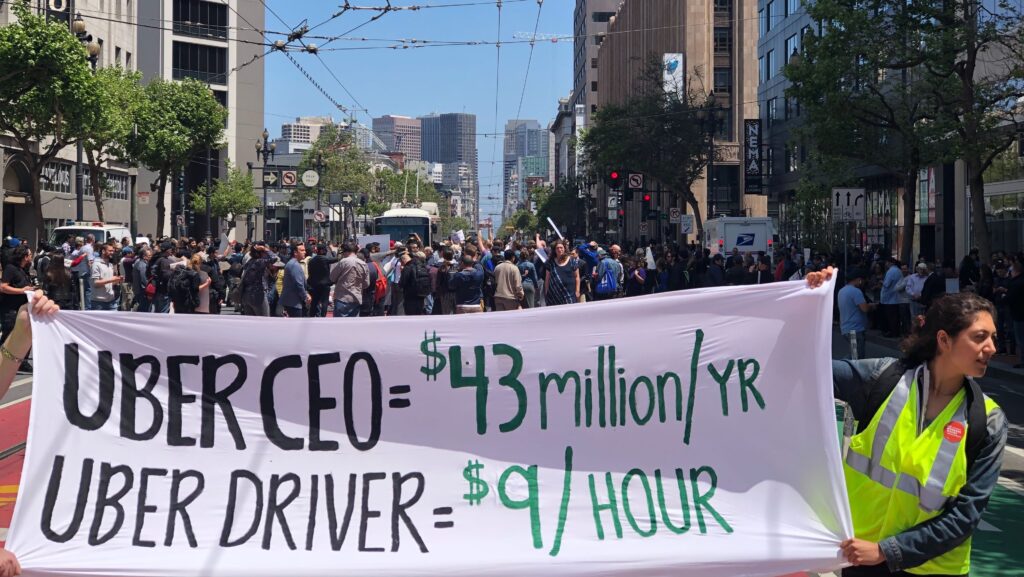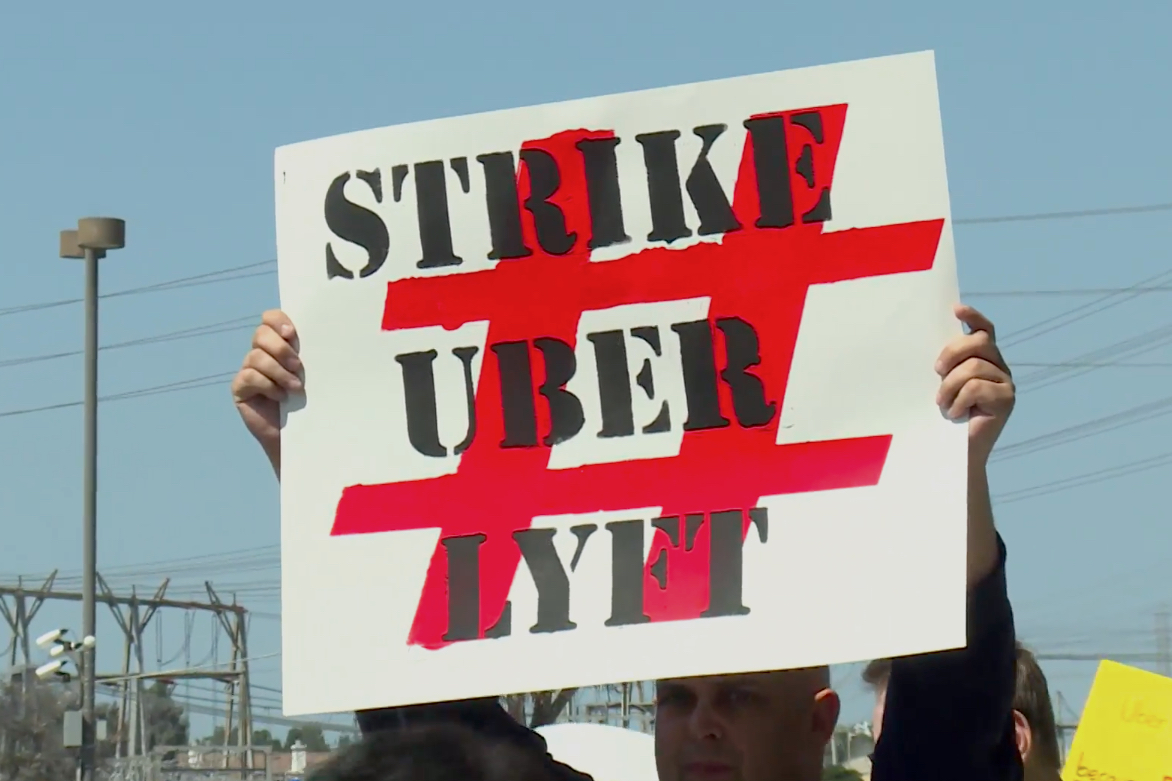On February 14, 2024, transportation and delivery workers in the “gig economy” coordinated a global strike action in Vancouver, Winnipeg, Toronto, dozens of major U.S. cities, the U.K., and Mexico, calling on users of services such as Uber, Lyft, and DoorDash to refrain from using these apps on this day as a form of picketing. Common demands by workers across jurisdictions include higher pay, better working conditions, and employee status with union representation.
In Vancouver, upwards of 100 Uber and Lyft drivers gathered at YVR Airport to draw attention to the serious issues of precarity and exploitation in gig work and demand stronger regulations against rideshare companies. A lot more drivers stayed offline in support of the strike. “Self-employed” work on app-based food and delivery platforms has grown in recent years, and this February’s drivers’ strike was the most recent attempt by workers across Canada in this sector to assert their interests through collective action.
App-based services in the “gig economy” get away with paying workers poorly and providing no benefits by claiming that they are platforms and not employers, making their workers “independent contractors” rather than regular employees. Under Bill 48, the BC government recently passed legislation to define app-based gig workers as regular workers, but its impact is yet to be seen. North Star interviewed two Uber drivers based in Metro Vancouver about the problems facing workers in this industry.
“We are working for Uber. We don’t have any support, we don’t have any backup, nothing.”
One driver, who has made over 13,000 trips with Uber over the past four years, describes that many drivers like her depend on working for Uber to make a living, but receive no benefits while paying for gas and car maintenance, and putting in long, often unpaid hours. “We are using our car, we are using our gas, we are using our time, and they are taking money from us,” she said.

During hours of peak demand, Uber or Lyft may charge double or triple the normal fare cost, though little if any of this goes to the drivers, who are blocked from seeing what Uber is charging riders and what percentage of the revenues is going to them.
Another driver North Star spoke with explained how workplace disputes and issues are handled by people at “call centers in the Philippines or India, who have no idea what is going on.” Rider complaints or bad ratings can lead to “account deactivation” at a moment’s notice, and drivers have no recourse other than call centers in the Global South to question or contest the nature of the deactivation. As gig work researcher and activist Veena Dubal states, these platforms like Uber and Lyft “set fares, control worker behaviour through algorithms, and unilaterally (and sometimes inexplicably) terminate workers.”
Another major barrier to rideshare workers’ organizing is the high degree of atomization relative to traditional workplaces. Neither of the drivers who spoke to North Star had prior knowledge of the February 14 strike and cited a lack of communication and face-to-face interaction as reasons why drivers, in their view, were not sufficiently informed of the strike action.
“Some of us believe that the entire system was built to make it difficult for workers to come together.”
Earla Phillips, a long-time Uber and Lyft driver and activist, VP of the Rideshare Drivers Association of Ontario, and one of the primary organizers behind the Canadian “No Love for Uber/Lyft” strike action, understands this difficulty firsthand. Phillips spoke to North Star about her experience driving and organizing, emphasizing that drivers only interact face-to-face at pick-up spots like airports and many drivers are from marginalized backgrounds and fear deactivation for speaking up.
These difficulties to rideshare driver organizing are no accident, according to Phillips. She has been speaking out for more than six years and understands clearly what is at stake in this struggle. Rideshare drivers are fighting to “make gig work real work,” though the implications extend to the entire labour landscape. “What people don’t understand is that the gig economy is coming for everyone’s jobs, and companies will ‘gigify’ whatever work they can… We need people to support us in our quest for fair pay and rights”

